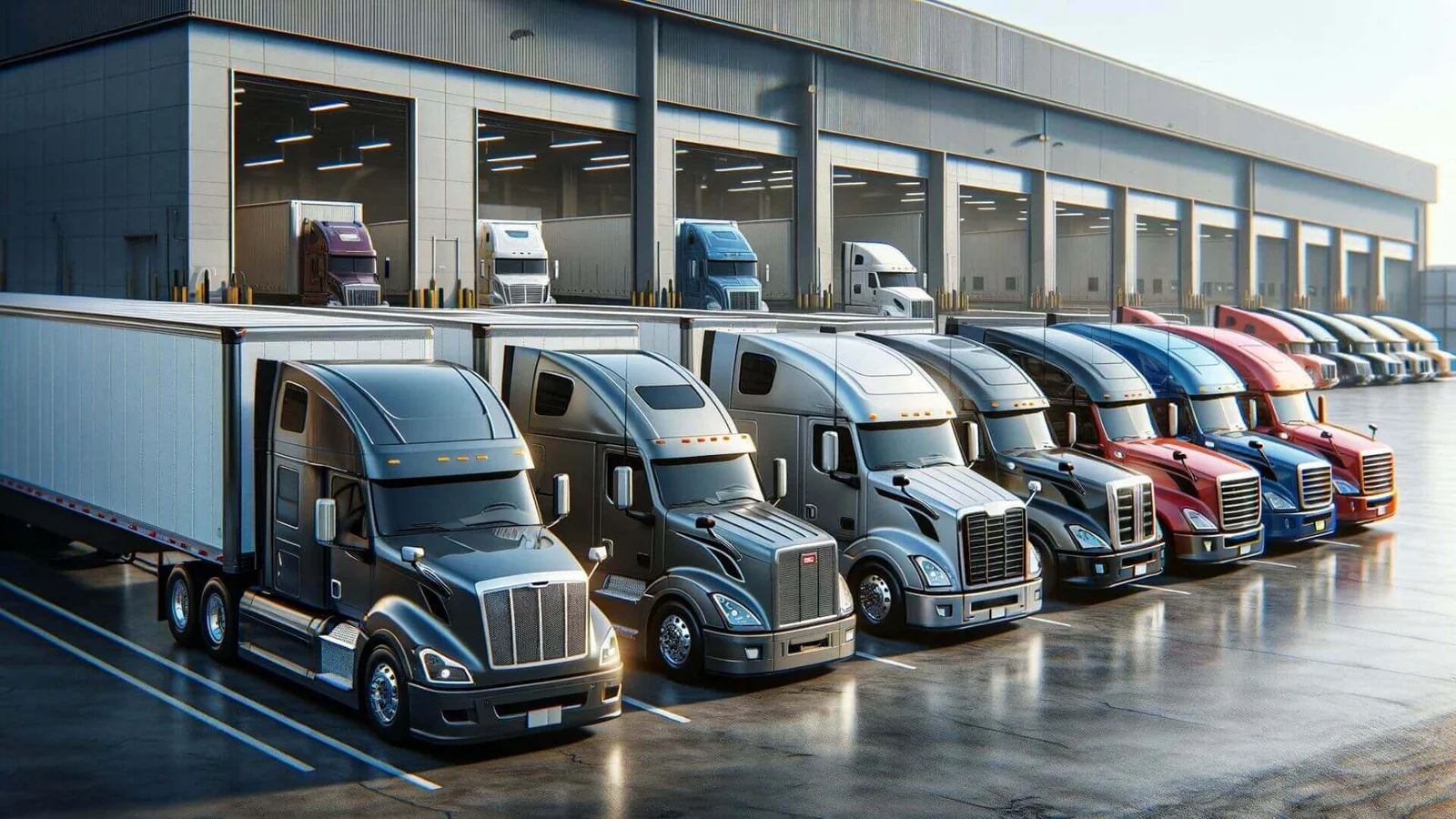How Trucking Companies Are Adapting in 2024

Technological advancements are poised to bring considerable change to the industry of trucking. Through improved telematics and artificial intelligence, its ecosystem is beginning to innovate its routes, streamlining their efficiency and making them safer.
With electric trucks hitting the road and emissions regulations intensifying, sustainability has become a growing trend – so much so that some specialist manufacturers say they are sold out of electric delivery trucks until 2024. Retailers that focus on green initiatives not only satisfy regulatory requirements, but also appeal to eco-conscious consumers and shippers.
Regulatory Changes
In 2024, trucking companies are seeking novel ways to manage regulatory changes, in an industry continually evolving due to innovations in technology, safety, and environmental protection.
Yet, again like many, the focus on verifiable reporting and newly mandated equipment such as electronic Logging Devices (eLDs) negatively affect business operations. Forward-thinking truck fleets appreciate that diversity programmes can be a key factor in driver hiring and retention.
With consumer spending patterns proving difficult, trucking would need to do some rightsizing in the first quarter of 2024 if they continue to get lower freight volumes and higher operating costs; technologies such as MercuryGate are enabling process standardisation for reducing risk, and helping firms stay ahead of the curve.
E-Commerce
The impact of this E-commerce growth is changing the demand for trucks to muster delivery within rapid shipping windows. An increasing number of retailers are switching from centralised inventory models for warehouses to multiple regional fulfilment centres and warehouses to cut shipping costs and improve service times; more lorries are required for interstate movements, while software such as route optimisation and dynamic scheduling present to fleets derive solutions for customer demands. Innovative solutions like https://www.shiply.com/us/hot-shot-trucking are becoming increasingly popular for meeting rapid shipping demands in the evolving logistics landscape.
Because of the shortage of drivers, fleets are forced to find not only innovative means of recruitment, but also to devise incentive schemes to increase worker satisfaction through higher wages or better work conditions, including career development.
With the help of forward-thinking industry leaders, the global logistics networks that truckers help to connect business and consumers will continue to thrive. They will rise to the new challenges and adapt to the vagaries of the market as they appear. That puts the industry in an even better position to tackle future challenges and support a more resilient and sustainable future.
Last-Mile Delivery
The final mile, as it is now called, is the last leg of the supply chain, between distribution centres or hubs and the end customer. For shipping companies and fulfilment centres, it can be both the most costly and most time-consuming part of the process; it also brings with it certain unique challenges.
These warehouse-style micro-fulfilment centres serve as a valuable middle ground between delivery hubs and brick-and-mortar associations. ‘Being able to place this asset in very densely populated areas of the city and offer more inventory for your top-selling items, which lowers your delivery times, that’s a big savings for you as a grocery operator,’ Megan Schuyler, an analyst at CPJ, told NBC News in 2020.
Another solution is to use route optimisation technologies to deliver efficiency and fuel savings, simplify return/exchange processes, enhance customer service, and reduce the carbon footprint of last mile delivery services.
Sustainability
Trucking companies that emphasise environmental sustainability are becoming more common in an industry known for frequent innovation. This can lead to more efficient supply chains and even savings on fuel costs, and it can also help to foster relationships with environmentally concerned buyers.
Trucking companies are becoming more careful about their energy use, are reusing material and recycling, and are using more eco-friendly trucks. More successfully, green trade strategies are helping to persuade their staff – and their customers – to go green.
Routing optimisation, the process of determining the best and safest routes for trucks to minimise empty miles (when a truck’s cargo is not full) and avoid traffic jams, is also a great option for reducing a trucking fleet’s fuel bills and its carbon footprint. Through utilisation of an AI-led-software that optimises routing, trucking companies can find better ways to accomplish their tasks, while saving money and resources.
Technology
To stay competitive in an industry that is changing daily, trucking companies need to invest in customised technology, which on one hand helps to simplify operations and on the other enhances data analysis. This way, they can make improved decisions and manage team operations effectively. Take, for example, automated driving systems and smart telematics – they are becoming increasingly crucial in reducing operational costs and ensuring high levels of safety for both freight owners and the general public.
Other technologies, such as blockchain-enabled software and secure sharing, are also making inroads in supply chains via improved transparency and efficiency, while also aiding in the prevention of fraud, for example. Customers benefit from better traceability.
Another is sustainability-boosting tech. A growing number of trucking firms are shifting to electric and hybrid trucks to reduce environmental impact amid stricter emissions standards while addressing increasingly eco-minded consumers. These advances also lower fuel and operational costs, enhancing fuel efficiency and improving pollution.






